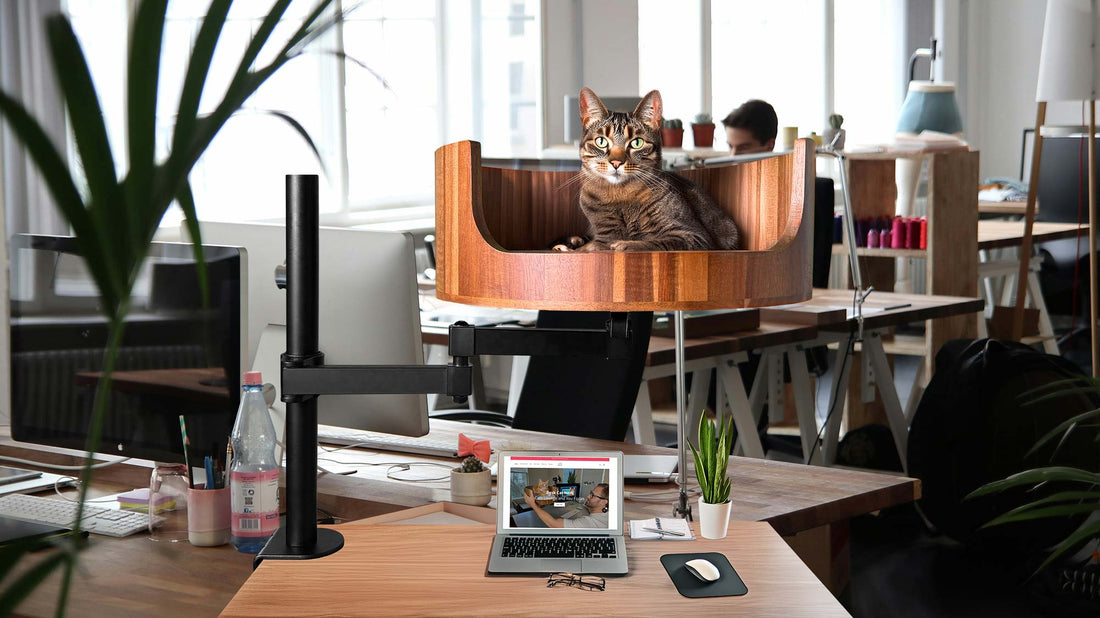
Why Does My Cat Want to Eat 24/7? Understanding Feline Hunger
Share
Have you ever wondered why your cat seems to always be hungry, no matter how much food you give them? Cats have a reputation for being finicky eaters, but some felines can’t seem to get enough food, constantly begging for more. This behavior can be perplexing for cat owners, who may worry that their pet isn’t getting enough to eat or may be suffering from underlying health issues.
In this article, we will explore the reasons why your cat may have an insatiable appetite and what you can do to help manage their hunger. We will discuss the various factors that can contribute to a cat’s constant need for food, from their natural hunting instincts to potential medical conditions that may be causing their increased appetite. Understanding the reasons behind your cat’s voracious appetite can help you provide them with the right food and care to keep them healthy and happy.
1. Cats have evolved as opportunistic hunters, leading them to possess a natural instinct to eat frequently.
2. A feline's feeding schedule should mimic their hunting patterns, with multiple small meals provided throughout the day.
3. Providing a balanced diet with high-quality protein can help satisfy a cat's hunger and prevent overeating.
4. Environmental enrichment, such as puzzle feeders and interactive toys, can help stimulate a cat's natural hunting instincts and alleviate boredom-induced eating.
5. Understanding a cat's hunger cues and establishing a consistent feeding routine can help maintain a healthy weight and overall well-being.
Understanding Feline Hunger
Feline hunger can be influenced by a variety of factors, including biology, behavior, and environment. Cats are obligate carnivores, meaning they require a diet high in animal protein to thrive. This natural instinct drives them to seek out food on a regular basis. Additionally, some cats may have higher metabolisms or increased energy needs, leading them to feel hungry more often than others. Understanding your cat's individual hunger cues and needs is essential in providing proper nutrition and preventing overeating.
Health Issues and Appetite Changes
If your cat is constantly asking for food or seems insatiable, it could be a sign of an underlying health issue. Medical conditions such as hyperthyroidism, diabetes, or kidney disease can cause changes in appetite and metabolism. It's important to consult with your veterinarian to rule out any potential health problems and develop a suitable feeding plan for your cat.
Dietary Considerations and Feeding Schedule
Feeding your cat a balanced diet that meets their nutritional needs is crucial in managing their hunger levels. High-quality cat food should contain the right balance of protein, fats, and carbohydrates to keep your cat feeling satisfied. Consider portioning out meals or using puzzle feeders to slow down their eating and prevent overeating. Establishing a consistent feeding schedule can also help regulate your cat's hunger and prevent excessive snacking.
Behavioral and Environmental Factors
Cats are creatures of habit and routine, so changes in their environment or daily schedule can impact their hunger levels. Stress, boredom, or lack of physical activity can lead to emotional eating or grazing behavior in cats. Providing mental stimulation, playtime, and interactive toys can help keep your cat entertained and prevent them from seeking food as a source of comfort or distraction.
Desk Cat Nest FAQ
Why does my cat want to eat 24/7?
Cats have a natural hunting instinct that drives them to eat frequently throughout the day. Additionally, some cats may have underlying health issues that contribute to increased appetite. Providing a balanced diet and engaging your cat in playtime can help manage their eating habits.
How can Desk Cat Nest help with my cat's constant eating?
Desk Cat Nest provides a comfortable and secure space for your cat to rest and relax, reducing their stress levels and potentially decreasing their desire to eat constantly. By creating a cozy environment for your cat, Desk Cat Nest can help regulate their eating habits.
Is Desk Cat Nest suitable for all cat breeds?
Desk Cat Nest is designed to accommodate cats of all sizes and breeds. The spacious design allows ample room for cats to stretch out and move around comfortably. However, it's essential to introduce your cat to Desk Cat Nest gradually to ensure they feel comfortable and secure in their new space.
Can Desk Cat Nest help with other behavioral issues besides constant eating?
While Desk Cat Nest is primarily designed to provide a cozy resting space for your cat, many customers have reported improvements in their cat's overall behavior, including reduced anxiety and increased calmness. By offering your cat a designated space of their own, Desk Cat Nest can help address various behavioral issues.
In conclusion, providing your cat with a comfortable and stress-free environment, such as a Desk Cat Bed, can help alleviate the constant desire to eat. The Desk Cat Bed offers a cozy and secure space for your cat to relax and feel safe, reducing their need to seek comfort in food. Additionally, the elevated design of the Desk Cat Bed helps to prevent overeating by limiting access to food throughout the day. Investing in a Desk Cat Bed is a valuable choice that not only promotes your cat's overall well-being, but also helps to address the issue of constant eating behaviors.



















































